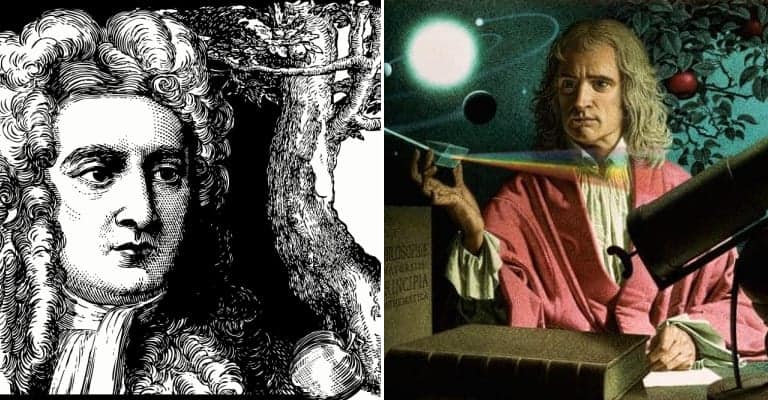For a short period of his long life, during 1692 -1693, Isaac Newton dropped into a period of what was called, in his day, madness. What actually occurred during the period, in terms of his mental state, remains the subject of debate and discussion among historians and scholars. Some have ascribed his symptoms to a developmental disorder; Asperger’s Syndrome. Others have labeled the polymath as suffering from depression. Still, others have blamed the difficulties he encountered on the toxic effects of the mercury and lead he used for various experiments. Newton developed few intimate relationships in his lifetime, remaining aloof to students and fellows, and was suspicious of most people, which has been ascribed by some as paranoia.
Beginning in the early nineteenth century, Newton’s biographers described him as a cold and unlikeable man, who was despite being a resident at Trinity College indifferent to its students, tutoring few. His religious views came to be considered heretical, contributing to his further isolation and he enjoyed little in the way of entertainment, which he considered frivolous. Yet he is considered to have recovered from his period of “madness” and continued to remain productive and healthy, living another three decades.

Here are some of the symptoms and behaviors exhibited by Sir Isaac Newton during his descent into madness in the late seventeenth century.

1. He unwittingly poisoned himself with heavy metals
In the late seventeenth century Isaac Newton began experimenting with alchemy. Newton left roughly ten million words behind in his notes, letters, and published works, with about ten percent, or one million words, dedicated to the subject of alchemy. One of the practices of alchemy was the attempted transmutation of metals into gold and silver. Newton’s notes reveal, though often in a code which he developed to protect his secrets, he experimented with numerous heavy metals beginning around 1692, shortly before entering into the period of his mental health issues. Among these metals were mercury and lead.
Isaac Newton’s body, through examination of his hair following exhumation, revealed dangerous levels of mercury, lead, and other toxic metals. His notes on the study of various heavy metals also included observations regarding their smell and taste, indicating he ingested them orally. It was shortly after beginning his alchemy experiments that Newton exhibited symptoms of mental illness, which he reported to colleagues in letters, and which were observed by others. His symptoms included insomnia, paranoia, chronic indigestion, and depression. Whether they were caused by his experimentation with heavy metals or exacerbated by them is subject to speculation.

